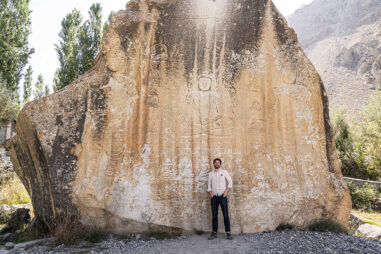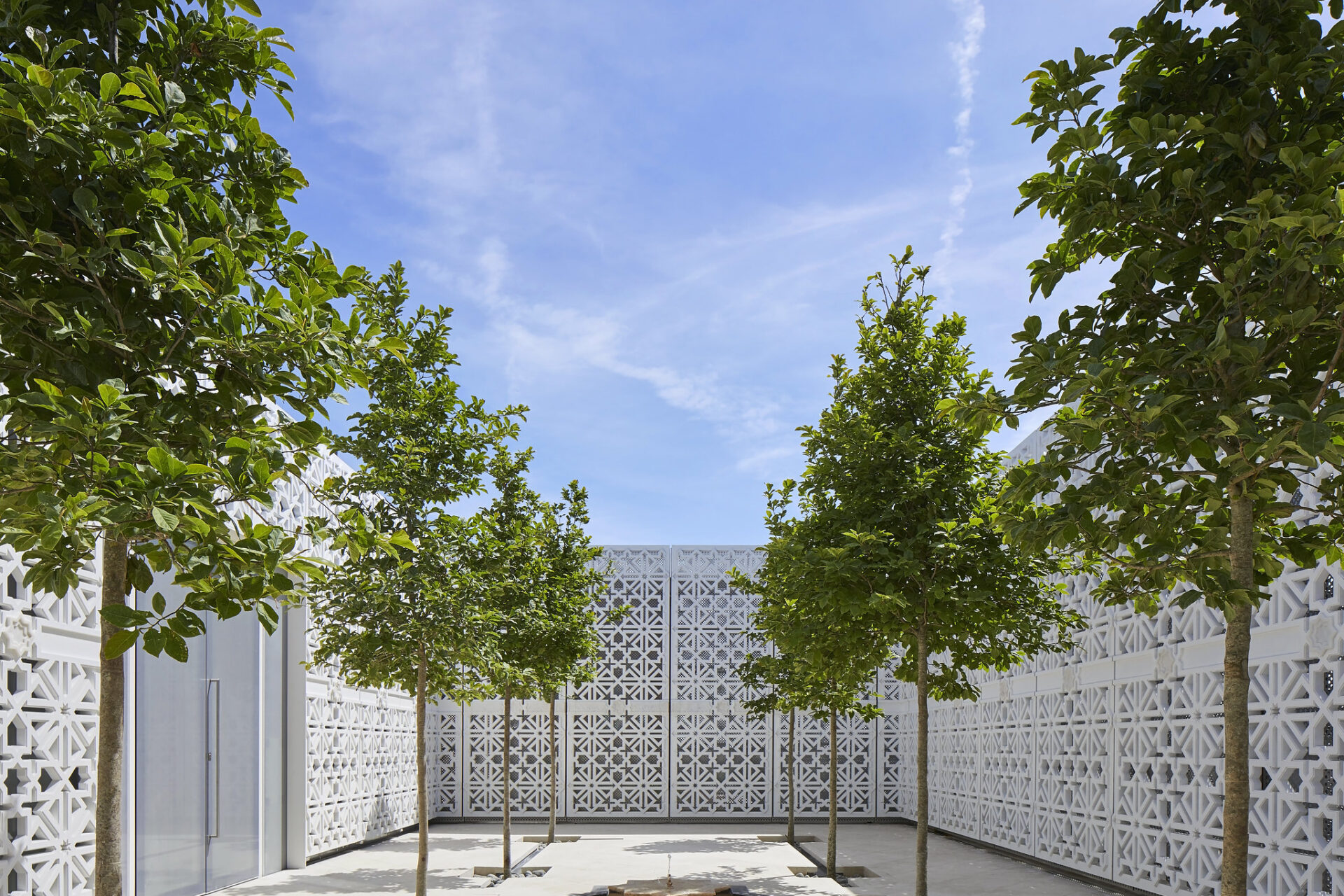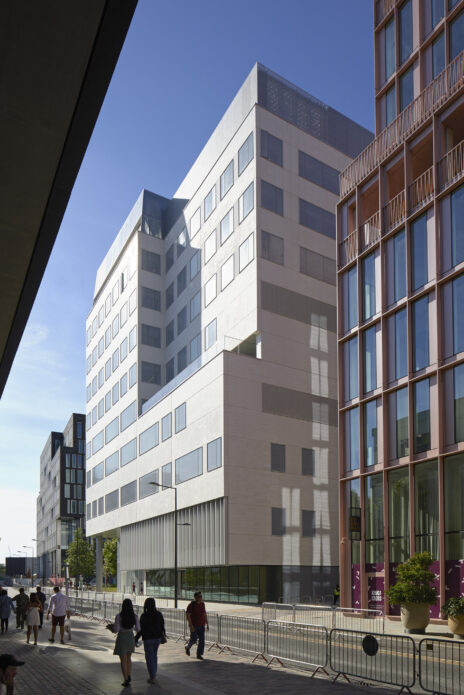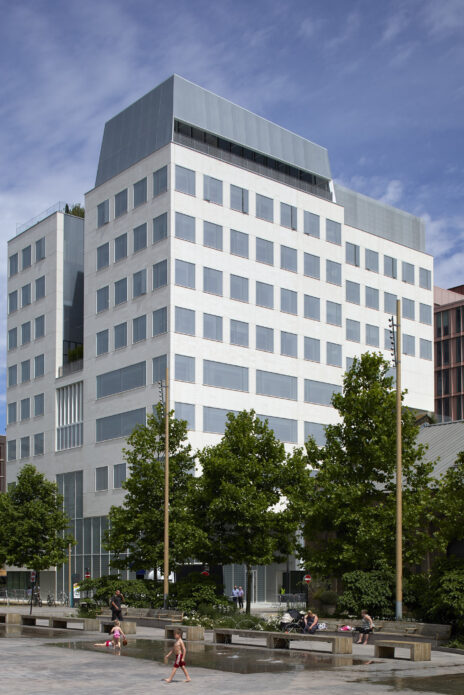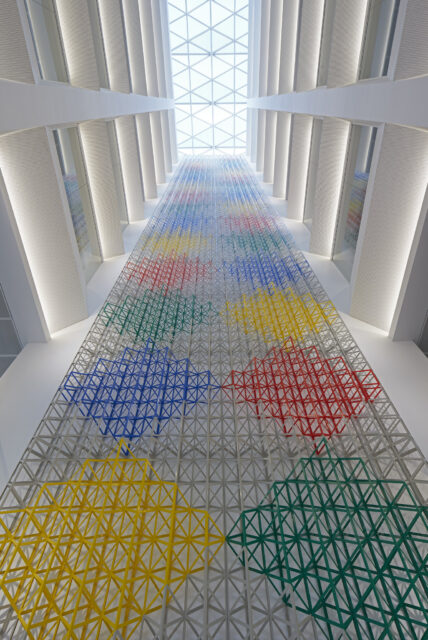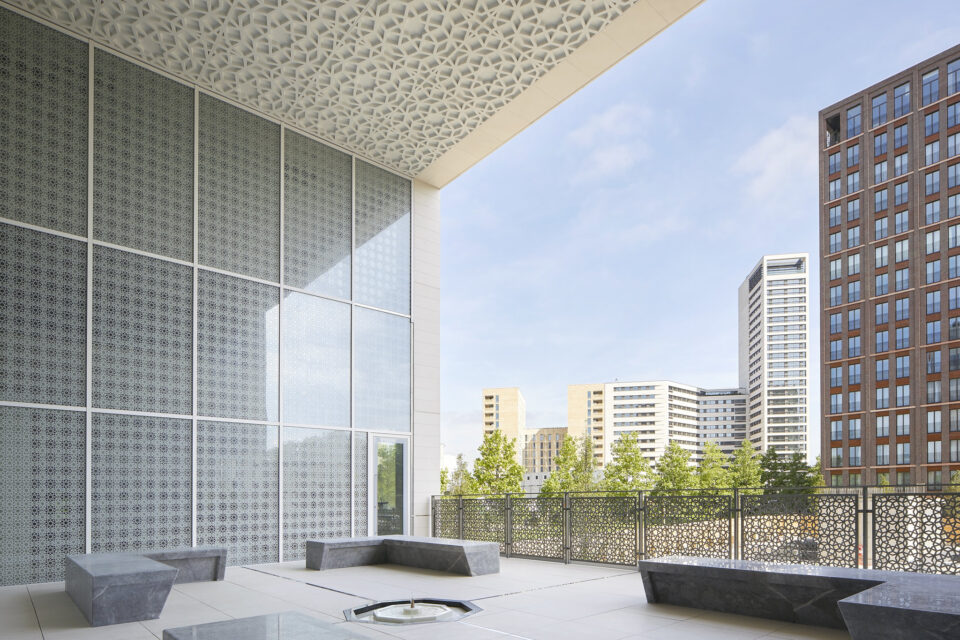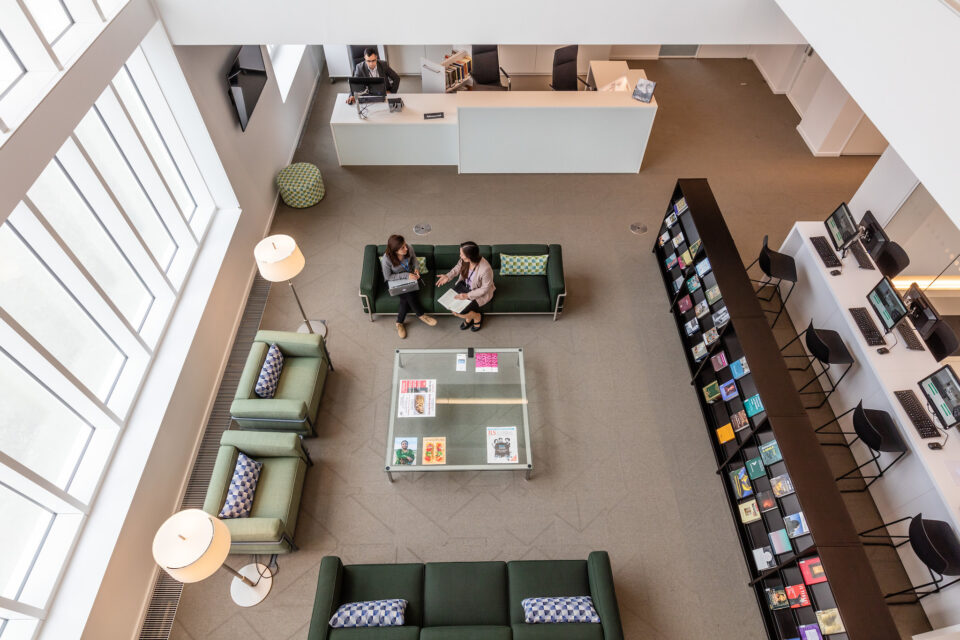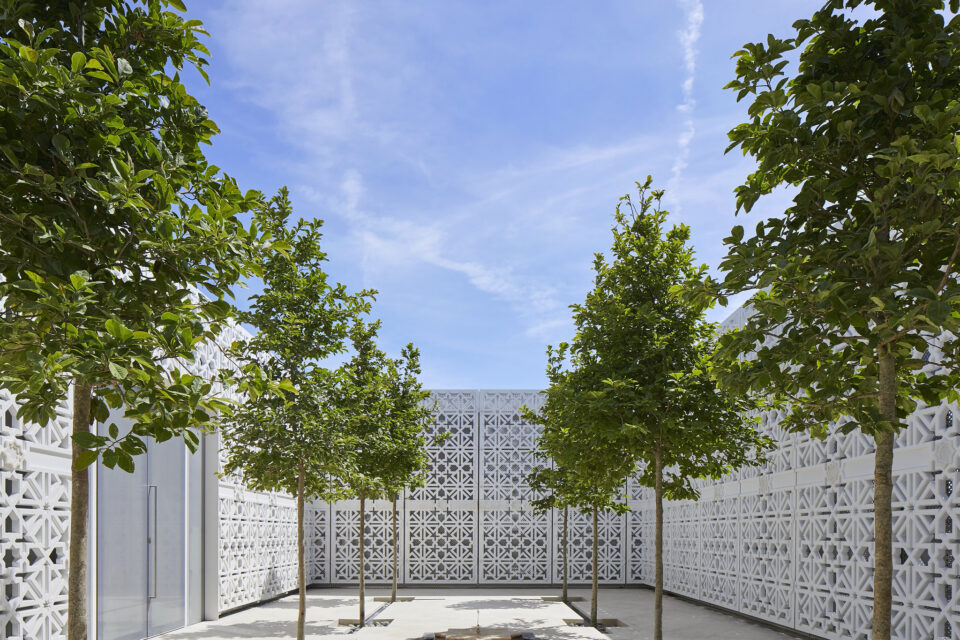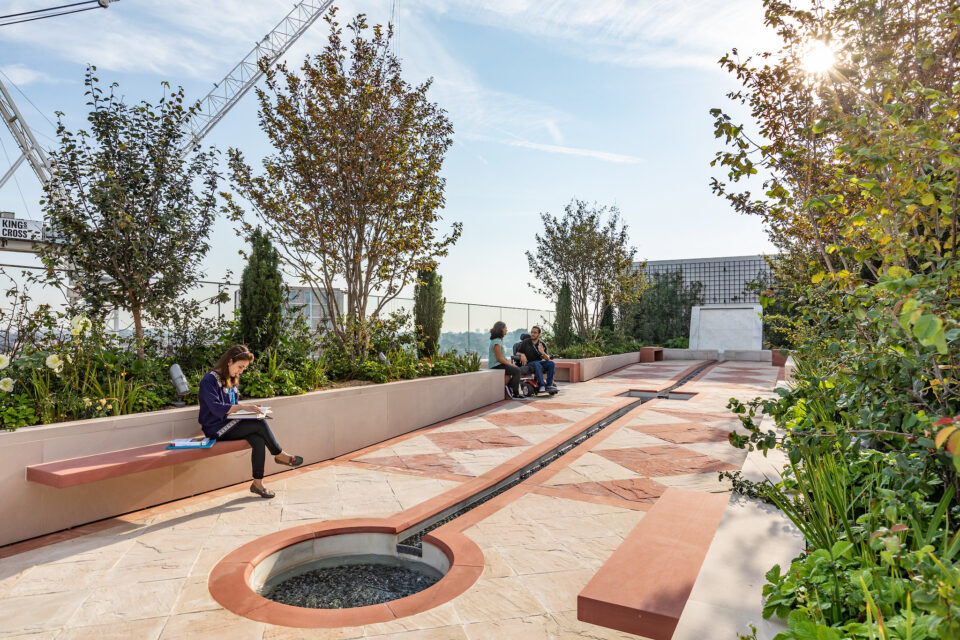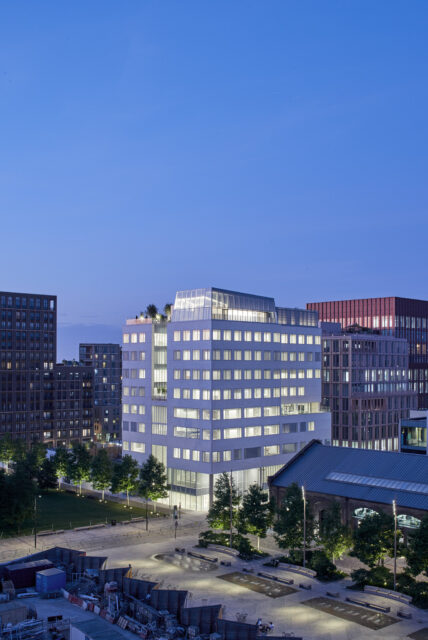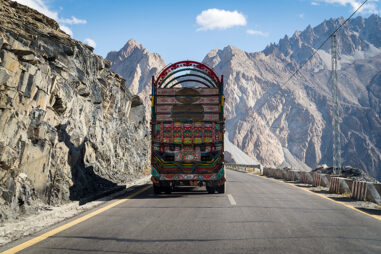The Aga Khan Centre in London’s King’s Cross is a place for education, knowledge, cultural exchange and insight into Muslim civilisations.
This building is designed to represent the values of openness, dialogue and respect for different viewpoints (pluralism). The architecture incorporates a collection of gardens, courtyards and terraces that provides an insight into the diversity and influence of Islamic landscape design around the world and through history.
The building was designed by Fumihiko Maki, one of Japan’s most distinguished contemporary architects. The Centre is primarily designed for an academic community, with places for students, scholars and staff to share ideas and work together alongside flexible teaching spaces and quiet research areas.
The organisations that are located here work together to bridge the gap in understanding about Muslim cultures and to connect the public to global development issues.
The Aga Khan Foundation seeks to improve the quality of life, enhance self-reliance and promote pluralism in poor and marginalised communities of Asia and Africa.
The Aga Khan University Institute for the Study of Muslim Civilisations is a higher education institution that promotes scholarship to open up new perspectives on Muslim heritage, modernity, culture, religion and society.
The Institute of Ismaili Studies was established in 1977 to promote scholarship and learning about Muslim societies and to encourage a better understanding of their relationships with other cultures and faiths.
The Centre hosts a variety of events, talks and exhibitions that are open to the public. The latter are housed at the Aga Khan Centre Gallery which aims to create a better understanding of Islam and Muslim cultures, past and present.
The Centre is also home to a rare book and manuscript collection. The Aga Khan Centre Library, London is committed to fostering knowledge of Islam, past and present, and to facilitating access to resources on the history, faith and cultures that comprise the Muslims in general and the Ismaili Shi‘a community, in particular, to external researchers and students.
